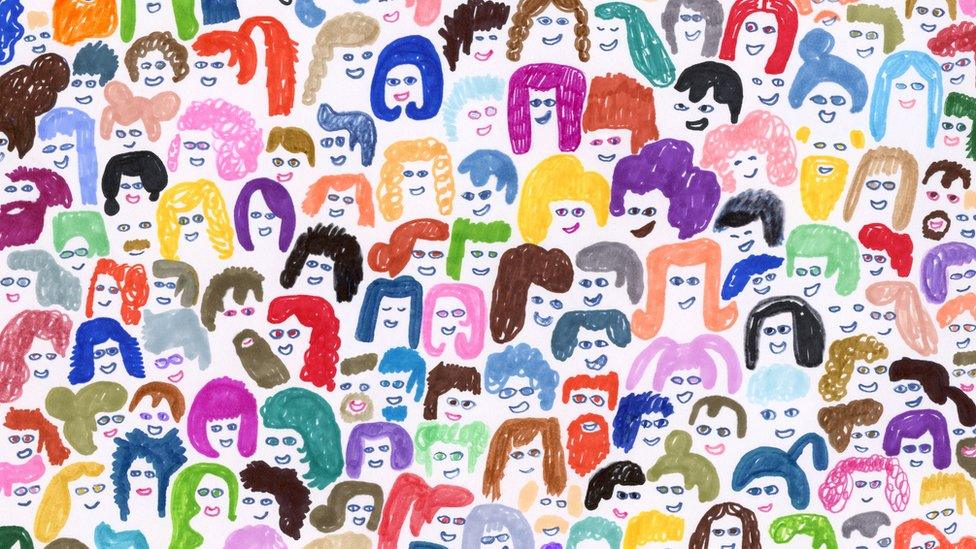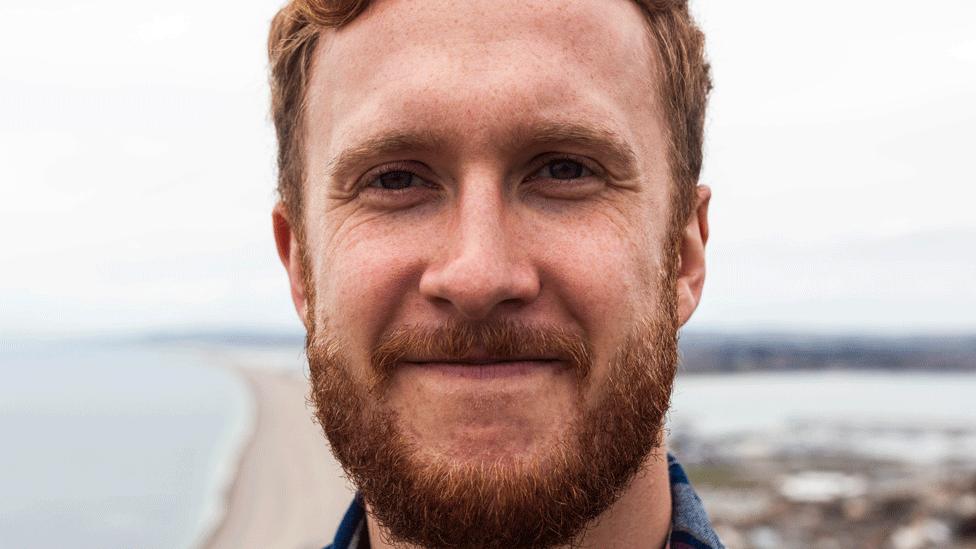Personality tests: Are you average, self-centred, role-model or reserved?
- Published

No-one likes being labelled, unless of course, it's a personality test.
With thousands of quizzes available online, most of us can't resist trying to find out the secret of who we are. Nurturer, healer, mastermind, wizard?
Not all of the tests have much science to back them up.
But now, researchers in America have studied the results of more than 1.5 million people and claim they've identified four distinct personality types - "average", "reserved", "role-model" and "self-centred".
But how did they get there and what do they mean?
Going back to the Greeks
Defining personality is something that's fascinated humans for thousands of years.
The problem is trying to fit people neatly into boxes, when most of us are more complex than that.
Psychologists like to look at character "traits" that feed into us becoming certain "types" of people.

The team, from Northwestern University, say there are five main traits "commonly accepted by psychologists around the world, known as 'Ocean'."
Openness - your natural curiosity, whether you're open to new experiences and learning new things.
Conscientiousness - how thoughtful or dependable you are.
Extraversion - how outgoing, assertive and sociable you are.
Agreeableness - your concern for other people, how sympathetic and considerate you are.
Neuroticism - the likeliness of emotional instability, mood swings, feeling depressed, lonely, angry or sad.
The researchers then looked at the data of more than 1.5 million people who'd taken part in personality tests and started plotting where they scored on the five traits given above.
In this video, they explain what they found.
The team claims the findings would've been impossible before the internet, as it's now much easier to analyse big data.
The four "types" of personality they've identified feature different combinations of the five main traits. The findings are published in the journal, Nature Human Behaviour, external.
Role-model
"These are people that are nice, they are agreeable," says lead author Professor Luis Amaral. "They are not neurotic and they are open-minded."
They score highly on the other four traits.
Self-centred
This is almost the mirror-image of the role-model, according to Prof Amaral.
"These are people that are not hard working, they are kind of disagreeable, they are not open minded. They are extroverts."
Reserved
"They have low neuroticism and low openness," according to Prof Amaral.
However, they are likely to be conscientious and agreeable.
Average
The one description we probably all fear, but according to the study, one which fits the "typical" person. They score slightly above average on neuroticism and extroversion but lower on openness.
"There is very little to say about average," is the slightly withering assessment from Prof Amaral.
The researchers also say people's personality types can change with age.
Given all the respondents could speak English and had access to a computer, it's likely most are from a Western background.
The researchers would like to widen their research to see if different languages and cultures throw up the same personality types.
Follow Newsbeat on Instagram, external, Facebook, external and Twitter, external.
Listen to Newsbeat live at 12:45 and 17:45 every weekday on BBC Radio 1 and 1Xtra - if you miss us you can listen back here.
- Published18 September 2018

- Published14 December 2017
